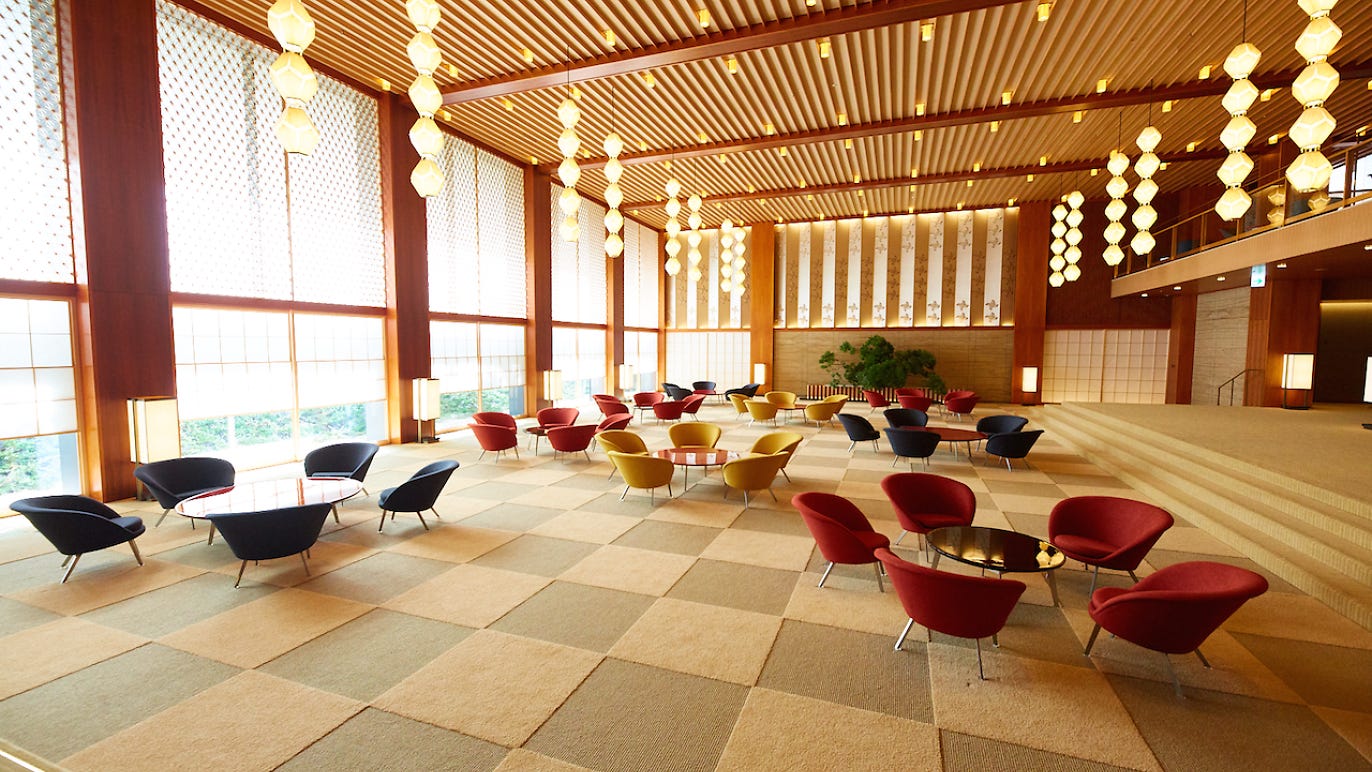Editor’s note: I hate acknowledging the existence of jetlag, but as I sit awake at 1:57 am, I am reminded of this great piece by a great writer and WITI contributor. Re-running it today. It will be new to many of you, thanks to our growing audience. -Colin (CJN)
Emanuel Derman (ED) grew up in Cape Town, South Africa, and came to Columbia University in New York to study for a PhD in physics. Since then he’s lived mostly in Manhattan. He started his professional life as a theoretical physicist, doing research on unified theories of elementary particles. From 1985 to 2002 he worked on Wall Street where he developed models for valuing options and volatility. Since then he has been a professor at Columbia University and head of their program in financial engineering. In 2004, he wrote the memoir My Life As A Quant.
Emanuel here. I first visited Tokyo in 1990, when I worked at Goldman, Sachs & Co. as head of the Quantitative Strategies group. Our job was to write software and models for the equity derivatives traders at Goldman, and we had just created a risk management system for managing the “Nikkei book,” the portfolio of derivative contracts we owned that had in common their dependence on the value of the Nikkei index. Our equity derivatives traders were a global team, with members in London, Tokyo, and New York, and the management of the book was passed around the world from team to team like a 400-meter relay runners’ baton as one market closed and the next one opened. I traveled to Tokyo to introduce the new system to our traders there.
This was my first experience with the ritual of traveling to Tokyo. First, the long wearying airplane flight with the sun at your side all the way. On this first trip to Asia for Goldman, the senior administrative colleague I traveled with had booked us in First Class, a luxury I was willing to let someone inflict on me but wouldn’t have felt right indulging in myself. Goldman had a policy that linked the class in which you could travel to the length of the flight, and I suspect that First Class was legitimate to Tokyo, though I still felt a little bad about it. My traveling colleague closed his eyes after we boarded the 2 p.m. flight and didn’t open them again or even twitch once until 14 hours had passed and we were approaching Tokyo, a feat that still amazes me. Shortly afterward the equity derivatives group I was part of decided that Business Class was the appropriate way to travel.
Goldman had a policy about cab fares too, which meant that the expensive cab ride from Narita airport to downtown Tokyo was forbidden. So there followed the long long bus ride from Narita to the Hotel Okura, the buses (like Tokyo itself) so modern and automated compared to New York City, with prerecorded charming female voices providing automated instructions about boarding at every stop.
I’m afraid I led a very sheltered life in Tokyo, all of my trips being business trips, and I always stayed in the South Wing of the Okura. I don’t normally care too much about perquisites – they’re the trimmings, not life itself. Therefore, I’m a little ashamed to say how much I loved the Hotel Okura; I’ve never stayed anywhere that was so wonderfully and unintrusively peaceful, a place where people paid so much attention to every detail. Someone there had somehow figured out exactly what people needed to stay calm and provided it. The rooms were tranquil, spacious, and bright; you could close the curtains at night and open them in the morning from the comfort of your bed with buttons that controlled them electrically. One day, when I lay down on the floor beside the curtains to do some situps before going for a run, I looked up and noticed that the sides of the curtains were attached to the wall framing the window by means of long strips of Velcro, to ensure that when the electric motors pulled open the curtains they would not disturb the light seal between curtains and wall. And so it went with everything in the Okura: room service, the restaurants and coffee shops, the gymnasium, the swimming pool, the wonderful small shops in the arcades beneath the hotel. All of them were just about perfect. Also impeccable was the fruit they put in your room each day. On my first trip, they included a few nostalgically delicious perfect loquats I hadn’t seen or tasted since I left South Africa, where they grew on trees in my neighborhood each spring.
From then on, throughout the 1990s, I visited our Tokyo office once or twice a year. Whenever I did, I aimed to arrive on a Saturday night, one full day before work started, not only to decompress and get rid of some jetlag but also because I just loved the Okura.
Why is this interesting?
One had no worries living in the Okura, despite the daily twelve-hour stints in the office. Left behind were bills, mail, email, chores, hassles, the weight of the world; your belongings were restricted to what you could carry in a garment bag – a few pairs of underwear, some shirts, and two suits. As soon as one item got dirty you sent it down to the laundry and a day later, or faster if you required, it was lying on your bed in a little straw basket, washed and pressed, every detail taken care of. The hotel provided razors and high-quality shaving cream in little pressurized canisters (I still have a few I use for travel). If you felt like getting into bed in the evening after work and eating grilled cheese and French fries, you just called Room Service. And of course, all of this seemed to cost nothing because the firm paid for it. I began to understand Nabokov choosing to live in a hotel in Montreux, undesirous of his own apartment or house. It felt deceptively like being in a monastery when one lived in the Okura – such peace and freedom from want. (I understand of course the inappropriate nature of this analogy; your desires hadn’t really vanished in the Okura; the peace came from desires fulfilled at a high but invisible price. But, nevertheless … )
The Okura was imperfect in only two respects, both of them erring on the side of profligacy. There were young women they had hired simply to stand at the elevators and bow graciously when you entered or exited; it was a bit too much. And the people who filled your coffee cup at breakfast topped it up as soon as you had drunk a few sips so that it was impossible to know just how many cups of coffee you had consumed by the time you left the table.
I told a South African friend about peace of mind in the Okura and he quoted to me someone (it could have been Naipaul) who said that good hotels disembody you but don’t depersonalize you.
There was a downside to visiting Japan. First of all, the numbing anomie that went with the stuporous body-wringing jetlag. Even on the few occasions when I stayed in Japan over the weekend and could get some rest, there were still those waves of weariness that poured over you at 11 a.m. in the morning and forced you to lie on your bed with your eyes closed. Second, the large evening meals. My hosts at Goldman (Japan) were enthusiastic to take me out to eat after work, at 8 p.m. in the evening, for sushi. But 8 p.m. for my hosts and my soul in Tokyo was unfortunately about 7 a.m. for my body, still mistakenly assuming it was in New York and finding itself awake after an entire night without sleep. To my great embarrassment, I couldn’t swallow more than a bite or two, despite repeated urgings.
One other ancillary but wonderful thing about being in Tokyo was running. Jetlagged, I would wake at the latest at 4 or 5 a.m. and then, tired but nevertheless wide awake on my body’s 5 p.m. New York clock, in the clean dawn I would run down the hill from the Okura and then along the long straight Sakurada Dori that led to the Imperial Palace and its gardens, There you could run an uninterrupted loop around the protective moat surrounding the Palace grounds, finally coming back to the hotel five or so miles later. It was something I always looked forward to.
In some strange way, my perception always adjusted to Tokyo very quickly. A few days after I arrived, as I looked at men and women walking down the street to work, I could no longer tell whether they were Japanese or New Yorkers. It was, I suppose, a case of one’s mind equating the background, whatever it was, to the background one was used to. Only contrasts stuck out.
I didn’t get away totally scot-free with the First-Class flight that initially took me to Tokyo. When I returned to Narita airport at the end of that first week, I ran into Fischer Black, who was also passing through Passport Control on his way back from visiting Goldman’s Tokyo office. He glanced at the FIRST CLASS label on my garment bag and took me aside and reprimanded me. It wasn’t necessary, he said, to travel First or even Business, although the firm allowed you to do so; he personally preferred to sit in Economy because it was actually more comfortable, he claimed. I could think of no good polite reply. (ED)
Fish of the day:
A juvenile boxfish aka “the world’s squarest fish” in waters off Indonesia. Via NYT (CJN)
—
WITI x McKinsey:
An ongoing partnership where we highlight interesting McKinsey research, writing, and data.
How the fashion industry can get into a metaverse mindset. Shoppers, particularly those in Gen Z, are spending more time online and exploring the possibilities of the metaverse. Here’s what you need to know about this emerging frontier.
–
Thanks for reading,
Noah (NRB) & Colin (CJN) & Emanuel (ED)
—
Why is this interesting? is a daily email from Noah Brier & Colin Nagy (and friends!) about interesting things. If you’ve enjoyed this edition, please consider forwarding it to a friend. If you’re reading it for the first time, consider subscribing (it’s free!).






